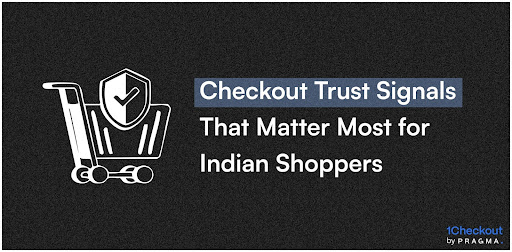Top Payment Modes of 2023: Digital Wallets, for Safe and Secure Payments

What are Digital Wallets?
A digital wallet, also known as an electronic wallet or e-wallet, is a virtual or digital device that securely stores payment and other financial information, such as bank accounts, credit/debit cards, and loyalty program information. It enables users to make transactions and payments, both online and in-person, without the need for physical cards or cash. Digital wallets can be used to make purchases in-store, online, or through a mobile app and they are accessible through a smartphone, tablet, or computer. The stored information is encrypted and protected with a password, PIN, or biometric authentication, making digital wallets a secure and convenient way to manage and use financial information.
A short peak into the past
The concept of digital wallets can be traced back to the 1990s, when early versions of electronic wallets were introduced for use on personal computers. However, it wasn't until the widespread adoption of smartphones that digital wallets truly took off.
In the early 2000s, companies like PayPal and Google started offering digital wallet services for online transactions. In 2014, Apple introduced Apple Pay, which marked a major turning point for the industry, as it allowed consumers to make in-store purchases using their smartphones.
Since then, digital wallets have become increasingly popular, with more and more companies entering the market and offering digital wallet services. Today, digital wallets are available from a variety of providers, including tech giants like Apple and Google, financial institutions, and payment companies. They are used for a wide range of transactions, from online purchases to in-store payments and peer-to-peer transfers.
The rise of digital wallets reflects a larger trend towards digitalization and the use of technology to simplify and enhance financial transactions.
Difference Between Digital Wallets and Bank Accounts
Bank accounts and digital wallets are two different ways to manage and store your money. Here are some key differences between the two:
Bank Accounts:
- Bank accounts are typically more traditional and regulated financial products offered by banks.
- They allow you to deposit money, withdraw money, write checks, and make electronic transfers.
- Bank accounts typically offer higher levels of security compared to digital wallets, and deposits in bank accounts are insured by government agencies.
- Bank accounts usually offer a range of additional services, such as loans, credit cards, and investment products.
Digital Wallets:
- Digital wallets are software programs that allow you to store and access your funds and payment information electronically.
- Digital wallets typically provide a more convenient and faster way to make payments and manage your money, as they do not require you to physically visit a bank.
- They can be used for a variety of purposes, such as making online purchases, sending money to friends and family, and storing loyalty card information and other forms of identification.
- Some digital wallets also offer additional features, such as the ability to hold multiple currencies, exchange rates, and rewards programs.
Ultimately, the choice between a bank account and a digital wallet will depend on your individual needs and preferences.
If you value convenience and the ability to manage your money on-the-go, a digital wallet is the way go - FYI, adoption of Digital Wallets have tripled in the last year due to its ease across
Here's how Digital Wallets typically work:

- Sign Up: To use a digital wallet, you will first need to sign up for an account with a digital wallet provider. This usually involves providing personal and financial information.
- Add Payment Information: Once you have an account, you can add payment information, such as credit card numbers and bank account information. Some digital wallets also allow you to add loyalty card information and other forms of identification.
- Make Payments: To make a payment using a digital wallet, you simply need to select the digital wallet as your payment method at the point of sale. The digital wallet will then use the stored payment information to complete the transaction.
- Receive Payments: You can also receive payments through your digital wallet, typically by providing the sender with a unique digital wallet address or QR code.
- Security: Digital wallets typically use encryption and other security measures to protect users' personal and financial information. However, it is important to be cautious and to regularly monitor your digital wallet account to ensure that there have been no unauthorised transactions.
Overall, digital wallets provide a convenient and secure way to manage and store your money and payment information.
There are several popular digital wallets that businesses can offer to their customers:
- Apple Pay
- Google Pay
- PayPal
- Venmo
- Square Cash
- Samsung Pay
- Alipay
- WeChat Pay
- Amazon Pay
- NFC (Near Field Communication) enabled digital wallets such as Android Pay and Microsoft Wallet.
Digital Wallets and India
Digital wallets have seen significant adoption in India in recent years. With a large and rapidly growing population of smartphone users, India has become a key market for digital wallet providers.
One of the primary drivers of the growth of digital wallets in India has been the government's push towards a cashless economy. In 2016, the government of India demonetized high-value currency notes, which led to a shortage of cash and a rapid increase in the use of digital payment methods.
Another factor contributing to the growth of digital wallets in India has been the increasing number of merchants accepting digital payments. With the rise of e-commerce and other online businesses, consumers are increasingly looking for convenient and secure ways to make payments, and digital wallets provide a solution to this need.
Overall, digital wallets have become an integral part of the financial landscape in India, and their use is only expected to continue to grow in the coming years as the country continues to move towards a cashless economy.
The rise of digital wallets can be attributed to several factors, including:
- The growth of e-commerce and m-commerce: The increasing popularity of online shopping and mobile commerce has created a demand for convenient and secure payment methods.
- The increasing use of smartphones: The widespread use of smartphones has made digital wallets accessible to a large number of consumers.
- The decline of cash and check usage: The decline of cash and check usage and the rise of debit and credit cards as the preferred payment methods have led to a growth in digital wallet usage.
- Security concerns: With the rise of cybercrime and data breaches, consumers are seeking secure and convenient payment methods. Digital wallets offer an added layer of security compared to traditional payment methods.
- Customer convenience: Digital wallets offer a streamlined checkout process and eliminate the need to physically handle cards or cash, making transactions quicker and more convenient for customers.
- Speed: Transactions made through digital wallets can be processed faster than traditional payment methods, reducing wait times and making checkout lines shorter.
- Wide acceptance: Many popular digital wallets are widely accepted by merchants, both online and in-store, making it easier for users to make purchases and pay for services.
- Integration: Digital wallets often integrate with other financial tools, such as bank accounts, investment apps, and budgeting software, allowing users to manage their finances more easily and effectively.
There are several benefits for businesses that offer digital wallets as a payment option, including:
- Increased sales: By offering digital wallets as a payment option, businesses can appeal to tech-savvy consumers and increase their sales.
- Reduced fraud: Digital wallets use advanced security features, such as encryption and biometric authentication, to protect against fraud and reduce the risk of chargebacks.
- Improved brand image: By adopting technology and providing customers with convenient and secure payment options, businesses can improve their brand image and reputation.
- Increased customer loyalty: By offering a seamless and convenient payment experience, businesses can increase customer loyalty and repeat purchases.
- Access to customer data: Digital wallets often collect and store customer data, such as payment information and purchase history, which can provide valuable insights for businesses and help inform future marketing and sales strategies.
By offering digital wallets as a payment option, businesses can improve the overall customer experience, increase sales, and appeal to tech-savvy consumers who prefer the convenience and security of digital payments.
There are several methods to offer digital wallets as a payment option:
- Integration with existing point-of-sale (POS) systems: Digital wallets can be integrated with existing POS systems to allow customers to make in-store payments using their digital wallet.
- Mobile payment integration: Digital wallets can be integrated into mobile apps, allowing customers to make payments directly from their smartphone.
- E-commerce platform integration: Digital wallets can be integrated into e-commerce platforms, allowing customers to make online payments using their digital wallet.
- QR code scanning: Digital wallets can also be used in-store through QR code scanning, which allows customers to make payments by simply scanning a code with their smartphone.
- In-app payments: Digital wallets can be integrated into specific apps, such as ride-sharing or food delivery apps, to allow customers to make in-app payments.
Overall, the method of integrating digital wallets as a payment option will depend on the type of business and its specific needs. Businesses can choose to integrate digital wallets through a single platform or multiple platforms, depending on their customer base and the channels through which they conduct transactions.
Now let’s take a look at a couple major Digital Wallet players of 2023

PayPal is a popular digital wallet and online payment platform that enables individuals and businesses to securely send and receive money, make payments, and manage their finances online. It was founded in 1998 and has since become one of the leading digital payment solutions, with over 300 million active users worldwide.
With PayPal, users can link their bank accounts, credit and debit cards, and other financial information to their PayPal account, making it easy to make and receive payments. PayPal also offers a range of additional services, including the ability to send invoices, request payments, and manage subscriptions.
PayPal offers a secure and convenient way for individuals and businesses to manage their finances and make transactions online. It provides users with the ability to make payments in over 200 countries and supports a range of currencies. PayPal also offers buyer protection for eligible purchases, ensuring that customers have peace of mind when making purchases online.

Apple Pay is a digital wallet and mobile payment platform developed by Apple Inc. It allows users to securely store their credit and debit cards on their Apple devices, such as iPhone, iPad, and Apple Watch, and make payments in-store, in-app, and online.
Apple Pay uses near field communication (NFC) technology and tokenization to securely transmit payment information to the payment terminal during transactions. This helps to protect against fraud and keep customer information secure.
With Apple Pay, users can make payments by simply holding their device near the payment terminal and using Touch ID or Face ID to authenticate the transaction. Apple Pay also supports online and in-app purchases, allowing users to quickly and easily complete transactions without having to enter payment information each time.
In addition to being a convenient way to make payments, Apple Pay also offers users the ability to manage their finances and view their transaction history from within the Wallet app on their Apple device. Overall, Apple Pay provides a secure and user-friendly payment experience that is easy to use and widely accepted by merchants.

Google Pay is a digital wallet and online payment platform developed by Google. It allows users to securely store their credit and debit cards, as well as other payment methods, and make payments in-store, in-app, and online.
Google Pay uses tokenization and encryption to securely transmit payment information to the payment terminal during transactions. This helps to protect against fraud and keep customer information secure.
With Google Pay, users can make payments in-store by simply tapping their phone on the payment terminal. The platform also supports in-app and online payments, making it easy for users to complete transactions without having to enter payment information each time.
Google Pay also offers users the ability to view their transaction history and manage their finances, including the ability to split payments with friends and family. Additionally, Google Pay integrates with other Google services, such as Gmail and Google Assistant, to provide users with a seamless and integrated payment experience.
Overall, Google Pay is a secure and convenient digital wallet that provides users with a simple and user-friendly way to make payments and manage their finances.

Alipay is a digital wallet and online payment platform developed by Alibaba Group. It is one of the largest mobile and online payment platforms in China, and has since expanded to other countries as well.
Alipay allows users to store their credit and debit cards, as well as other payment methods, and make payments in-store, in-app, and online. The platform also supports money transfers between individuals and bill payments.
Alipay uses encryption and other security measures to protect user information and keep transactions secure. With Alipay, users can make payments by scanning QR codes or using their mobile device to complete transactions.

Paytm is a digital wallet and online payment platform based in India. It was launched in 2010 as a mobile recharge platform and has since expanded to offer a range of financial services, including payments, money transfers, and bill payments.
Paytm allows users to store their credit and debit cards, as well as other payment methods, and make payments in-store, in-app, and online.
Overall, Paytm is a digital wallet and financial services platform that provides Indian users with a secure and convenient way to make payments, manage their finances etc.
FAQs
- Are Digital Wallets Safe?
Reputable digital wallet providers typically have multiple layers of security in place, such as encryption, two-factor authentication, and secure servers, to protect your funds. However, the security level of a digital wallet also depends on how it is used and the measures that are taken to protect it, such as using a strong and unique password, regularly monitoring transactions, and keeping software up-to-date.
- How many Digital Wallets can an individual use?
You can use as many digital wallets as you want. There are many different digital wallet providers, and each offers different features and advantages - and users can benefit from all of them.
- What is the safest Digital Wallet in India?
Here are a few popular digital wallet options in India that are known for their security features:
- Paytm: One of the most popular digital wallets in India, Paytm offers a secure platform for online transactions, bill payments, and mobile recharges.
- Google Pay: This digital wallet is operated by Google and is integrated with the company's secure infrastructure. Google Pay also offers multiple layers of security, including device authentication and 24/7 fraud monitoring.
- PhonePe: Another popular digital wallet in India, PhonePe uses secure encryption technology to protect users' personal and financial information.
- Amazon Pay: Amazon Pay is another secure digital wallet option in India, with multiple security features in place to protect users' information and funds.






